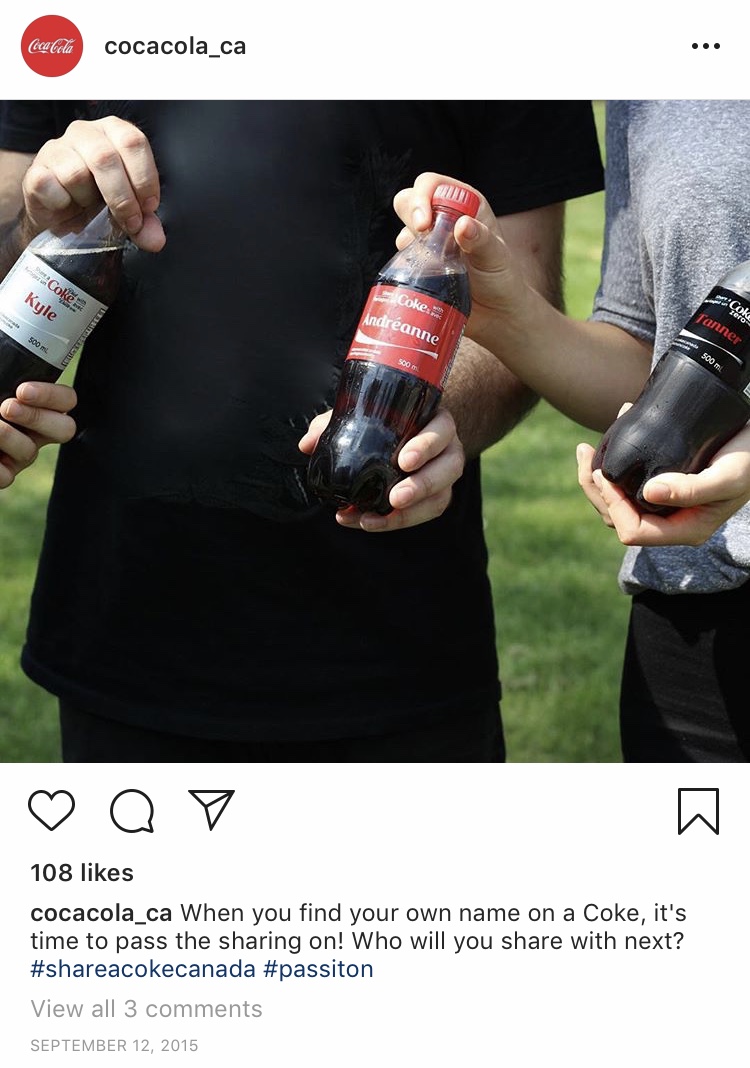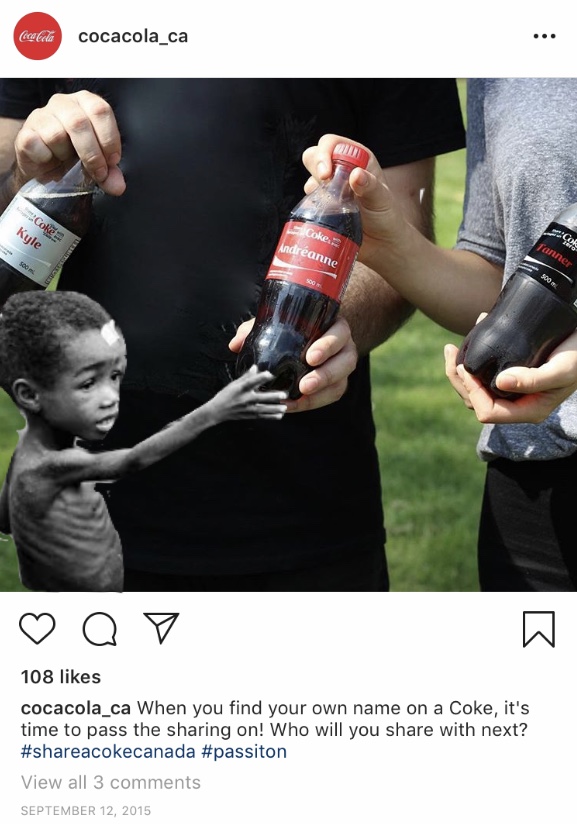SHARE A COKE CAMPAIGN

Coca-cola Share a Coke campaign was first launched in Australia in 2011. The campaign entices consumers to “share” a can of coca-cola with their name imprinted on the can either physically, or virtually through a media platform exemplified on their website. Since 2011, the campaign has run every summer for 12 weeks in all 200 countries Coca-cola is sold. The objective of this campaign was to create a connection between consumer and brand through the personalization of name engraved cans. While these 12 weeks for Coca-cola is their busiest of the year, with sales increasing by 0.4% at this time, the campaign has received some back-lash in regards to the “type” of names printed on the cans, and the type of “names” people are allowed to imprint on the can. As Coca-cola was founded in the USA, it is a primarily english speaking company with international expansions that enforce use of other languages. Criticism of this campaign, with regards to a bias in names, resides in international names not being printed on can regardless of their sales destination. For example, tradition Indian and Arabian names are not used in India or Arab-Israel respectively. Similarly and more recently, Coca-cola sought criticism when it allowed for people to virtually type the “name” straight in the name generator, but when someone typed the name “gay” was typed in it was rejected and a error message saying “let’s pretend you didn’t say that” would appear on the screen of the user. Although I see these two criticism of the campaign extremely problematic, society has neglected to see an additional problem associated with the actual name of the campaign, “Share a coke”.

While the title of campaign may seem catchy and enticing to the eye, would people really share a coke with someone if they knew that starving children in El Salvador were the ones collecting the sugar cane that is used in that very same can of ‘coke’. Coca-Cola is one of the biggest sugar purchasers in the world, and to say that they do not purchase sugar produced via slave or child labour they are wrong. The majority of sugar coming out of places like El Salvador, Venezuela, and the Phillipines is a result of children walking through sugar cane fields with machetes and backpacks collecting the precious sugar cane. While Coca-Cola has produced a statement stating that they do not “directly promote the use of child labour and ensure ways to avoid the use of child labour” they do not directly state that child labour is not used in the collection or production of sugar cane they buy. By adding the small, starving, and emaciated child to the advertisement posted on the social media platform, Instagram, it makes consumers think twice about consuming such product that exploits children. Children making 150 pesos for a seven hour work day are the ones indirectly aiding in the production of the main ingredient in Coca-Cola and yet we can not “share” with them. The use of the word “share” in the share a coke campaign only refers to sharing with straight, english named, and living in developed nations people, not with the starving children that help produce this product. In general, the share a coke campaign was a brilliant success for the company but neglected to inform the population of consumers that the Coca-cola they were share is one that has been created via the exploitation of young sugar cane workers. What can we share with them?
Please take a look at this article and video produced by CNN.
https://www.cnn.com/2012/05/01/world/asia/philippines-child-labor/index.html
References
https://www.hrw.org/news/2004/06/09/el-salvador-child-labor-sugar-plantations
https://www.forbes.com/sites/markfidelman/2013/07/01/you-wont-believe-the-absurdity-of-criticism-about-coca-colas-brilliant-social-campaign/#364341c257db
https://sites.google.com/site/starvingchildreninafrica777/